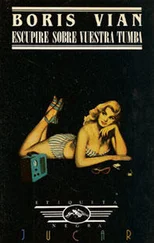Danilo Kis - Tomb for Boris Davidovich
Здесь есть возможность читать онлайн «Danilo Kis - Tomb for Boris Davidovich» весь текст электронной книги совершенно бесплатно (целиком полную версию без сокращений). В некоторых случаях можно слушать аудио, скачать через торрент в формате fb2 и присутствует краткое содержание. Год выпуска: 2001, Издательство: Dalkey Archive Press, Жанр: Современная проза, на английском языке. Описание произведения, (предисловие) а так же отзывы посетителей доступны на портале библиотеки ЛибКат.
- Название:Tomb for Boris Davidovich
- Автор:
- Издательство:Dalkey Archive Press
- Жанр:
- Год:2001
- ISBN:нет данных
- Рейтинг книги:4 / 5. Голосов: 1
-
Избранное:Добавить в избранное
- Отзывы:
-
Ваша оценка:
- 80
- 1
- 2
- 3
- 4
- 5
Tomb for Boris Davidovich: краткое содержание, описание и аннотация
Предлагаем к чтению аннотацию, описание, краткое содержание или предисловие (зависит от того, что написал сам автор книги «Tomb for Boris Davidovich»). Если вы не нашли необходимую информацию о книге — напишите в комментариях, мы постараемся отыскать её.
Tomb for Boris Davidovich — читать онлайн бесплатно полную книгу (весь текст) целиком
Ниже представлен текст книги, разбитый по страницам. Система сохранения места последней прочитанной страницы, позволяет с удобством читать онлайн бесплатно книгу «Tomb for Boris Davidovich», без необходимости каждый раз заново искать на чём Вы остановились. Поставьте закладку, и сможете в любой момент перейти на страницу, на которой закончили чтение.
Интервал:
Закладка:
The wedding ceremony was performed on December 27, 1919, on the torpedo boat Spartacus, which was anchored in Kronstadt harbor. The documents are few and contradictory. According to some, Zinaida Mihailovna was deathly pale, with "the pallor that unites death and beauty” (Mikulin), and looked more like an anarchist before a firing squad than the muse of the Revolution who has just escaped death by a hairbreadth. Mikulin mentions a white wedding wreath on Zinaid's hair, the sole symbol of old times and custom, while in his memoirs Olimsky talks about the white gauze which "like a wedding wreath” was wrapped around Maysner's wounded head. The same Olimsky, who proved more objective in his memory than the lyrical Mikulin (who passed Novsky by in silence, so to speak), gives an altogether schematic picture of the political commissar in that intimate moment. "Handsome, with a stern look, dressed monastically even for that solemn occasion, he appeared more like a young German student who had emerged the victor in a duel than a political commissar who had just come back from a fiery skirmish." Everyone more or less agrees in other details. The boat was quickly decorated with signal flags and lit up with red, green, and blue bulbs. Simultaneously celebrating the wedding and their victory over death, the crew appeared on deck freshly shaved and pink-cheeked, fully armed, as if for an inspection. But the cables informing the general staff about the course of the operation and the lucky rescue had drawn the attention of the officers of the Red fleet, who now arrived in blue military overcoats over their white summer uniforms. The torpedo boat greeted them with whistles and the cheers of the crew. The breathless radioman brought to the commander's bridge, where the young married couple had taken shelter, uncoded cables with congratulations from all the Soviet ports from Astrakhan to Enzeli: “Long live the newlyweds!", "Long live the Red fleet!", "Hurrah for the brave crew of the Spartacus". The Revolutionary Council of Kronstadt sent armored can with nine cases of French champagne seized from the anarchists the day before. Kronstadt's brass band climbed up the gangplank and onto the deck playing marches. Because of the temperature, 22° below zero (Fahrenheit), the instruments had a strange, cracked sound, as if made of ice. Patrol boats swarmed around, greeting the crew with signals. Three times stern trios of Chekists came on deck, their guns drawn, demanding that the celebration be stopped for security reasons; three times they returned their guns to their holsters at the mention of Novsky's name, and joined the officers, chorus in its shouts of "Bitter! Bitter!… Sweet! Sweet!" The empty champagne bottles flew over the sides like 25-millimeter artillery shells. At dawn, when the sun broke through the fog of the winter morning like the flame of a distant fire, one drunken Chekist saluted the birth of the new day with a salvo from the antiaircraft gun. The crew was strewn all over the deck as if dead, lying on heaps of broken glass, empty bottles, confetti, and small frozen puddles of French champagne rosy as blood. (The reader recognizes, surely, the awkward lyricism of Leo Mikulin, a student of the Imagists.)
This marriage was dissolved after eighteen months, and Zinaida Mihailovna, during an illegal excursion to Europe, became the companion of the Soviet diplomat A. D. Karamazov. As far as her brief marriage to Novsky is concerned, some documents tell of tormented scenes of jealousy and passionate reconciliations. The claim that Novsky used to whip Zinaida Mihailovna in his jealous fits, however, may well be the fruit of another jealous imagination-that of Mikulin. In her autobiographical book Wave After Wave, Zinaida Mihailovna passes over her personal memories as if writing them on water: the whip appears here only in its historical and metaphorical context as the "knout” that mercilessly whips the face of the Russian people.
(Zinaida Mihailovna Maysner died of malaria in August 1926. In Persia. She was not quite thirty years old.)
As we have mentioned before, it is impossible to establish the exact chronology of Novsky's life during the civil war years and those immediately following. It is known that in 1920 he fought against the rebellious and despotic emirs in Turkestan, and subjugated them with their own weapons of cunning and cruelty; that during the hot summer of 1921, noted in the annals for the invasion of malarial mosquitoes and horseflies that swarmed down to suck the people's blood, he was in charge of the liquidation of banditry in the Tambov Region, on which occasion he received a saber or knife wound that gave his face the cruel stamp of heroism. At the Congress of Eastern Peoples we find him at the presidential table, aloof, with the perennial cigarette between his yellowed teeth. His speech was greeted with applause, but one reporter observed the absence of zeal, and the dull gaze of this man whom they had once called "the Bolshevik Hamlet". We know also that for a time he served as the political commissar of the Caucasus-Caspian Revolutionary Naval Committee, and that he was an artillery corps officer in the Red Army, then a diplomat in Afghanistan and Estonia. At the end of 1924 he appeared In London as a member of the delegation negotiating with the perpetually distrustful British, On that occasion he personally initiated contact with representatives of the trade unions, who invited him to the next congress in Hull.
As far as we know, he held his last position in Kazakhstan, in the Central Office for Communications and liaisons. He was bored; and in his office he again began to draw plans and make calculations: a bomb the size of a walnut, with tremendous destructive power, obsessed him until the end of his life.
B. D. Novsky, the representative of the People’s Commissariat for Communications and Liaisons, was arrested in Kazakhstan on December 23, 1930, at two o’clock in the morning. His arrest was much less dramatic than reported in the West. According to the reliable testimony of his sister. there was no armed resistance and fighting on the stairs, Novsky was asked urgently over the telephone to come to the Central Office, The voice was probably that of the engineer on duty: Butenko. During the search, which lasted until eight o'clock in the morning, all his documents, photographs, manuscripts, sketches, and plans, as well as his books, were taken. This was the first step toward the liquidation of Novsky. On the basis of very recent information, given by A. L. Rubina, Novsky's sister, this is what happened later:
Novsky was confronted with a certain Reinhold, T. S. Reinhold, who confessed that he was a British spy, and that by order he had been sabotaging the economy. Novsky maintained that he had never before seen this unfortunate man with a cracked voice and a dull gaze. After fifteen days, which were granted to Novsky to think things over, he was again brought before the interrogator, and offered sandwiches and a cigarette. Novsky refused the offer and asked for a pencil and paper, to get in touch with some people in high places. At dawn the next day he was taken out of his cell and sent to Suzdal. When the car arrived at the railroad station on that icy morning, the platform was deserted- A single cattle car stood on a siding, and it was to this car that they took Novsky. Fedukin, the tall, pock-marked, and unbending interrogator, spent some five hours alone with Novsky in this cattle car (the doors were locked from the outside), trying to persuade him of the moral obligation of making a false confession. These negotiations failed entirely. Then followed long nights without days spent in solitary confinement in Suzdal Prison, in a damp scone-walled cell known as the "doghouse,” which had the major architectural advantage of making a man feel as if he were buried alive, so that he experienced his mortal being, in comparison with the eternity of stone and time, as a speck of dust in the ocean of timelessness, Novsky was already a man of failing health; the long years of hard labor and revolutionary zeal, which feeds on blood and glands, had weakened his lungs, kidneys, and joints. His body was now covered with boils, which would burst under the blows of rubber truncheons, oozing out his precious blood along with useless pus. Nevertheless, it seems that in contact with the stone of his living tomb, Novsky drew some metaphysical conclusions undoubtedly not much different from those suggesting the thought that man is only a speck of dust in the ocean of timelessness; but this also revealed to him another conclusion, which the architects of the "doghouse" could not have foreseen: nothing for nothing. The man who found in his heart this heretical and dangerous thought, which speaks of the futility of one's own being-in-time, Ends himself, however, faced with another (final) dilemma: whether to accept the transitoriness of this being-in-time for the sake of that precious and expensively acquired knowledge (which excludes any morality and therefore is made in absolute freedom), or, for the sake of that same knowledge, to yield oneself to the embrace of nothingness.
Читать дальшеИнтервал:
Закладка:
Похожие книги на «Tomb for Boris Davidovich»
Представляем Вашему вниманию похожие книги на «Tomb for Boris Davidovich» списком для выбора. Мы отобрали схожую по названию и смыслу литературу в надежде предоставить читателям больше вариантов отыскать новые, интересные, ещё непрочитанные произведения.
Обсуждение, отзывы о книге «Tomb for Boris Davidovich» и просто собственные мнения читателей. Оставьте ваши комментарии, напишите, что Вы думаете о произведении, его смысле или главных героях. Укажите что конкретно понравилось, а что нет, и почему Вы так считаете.









